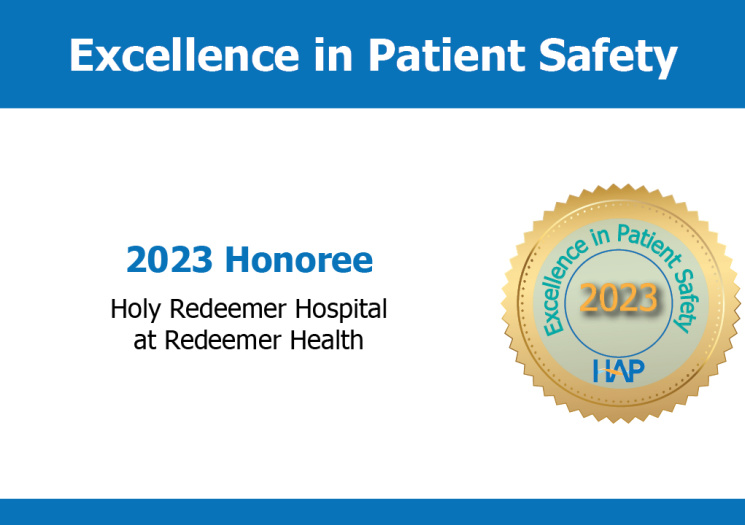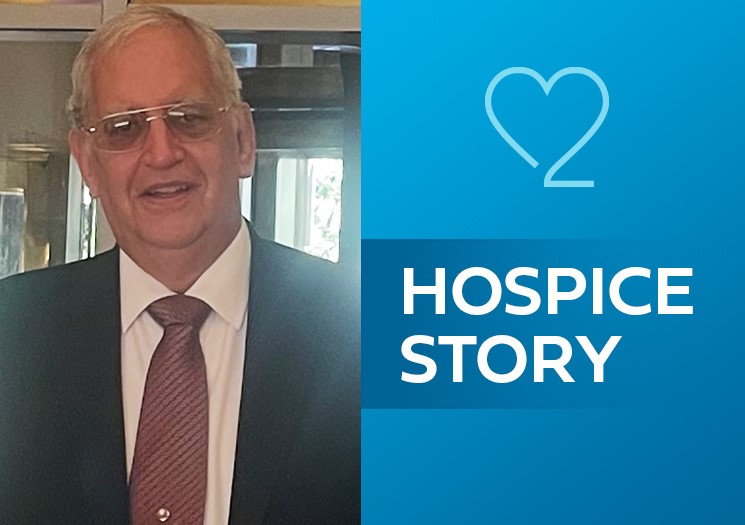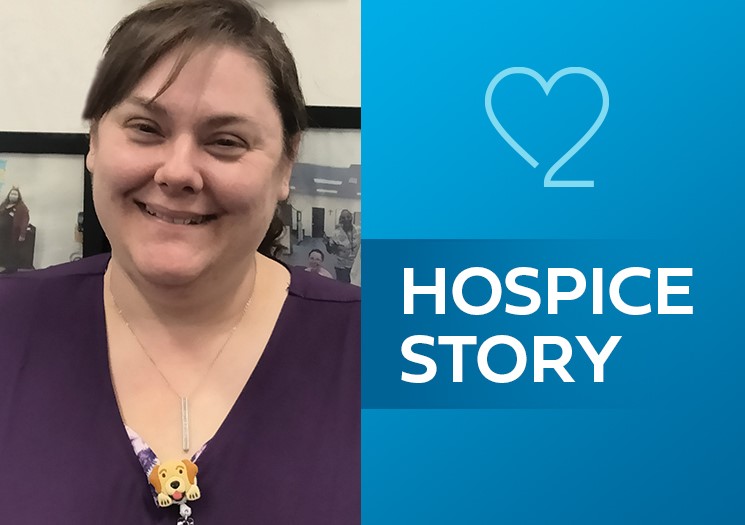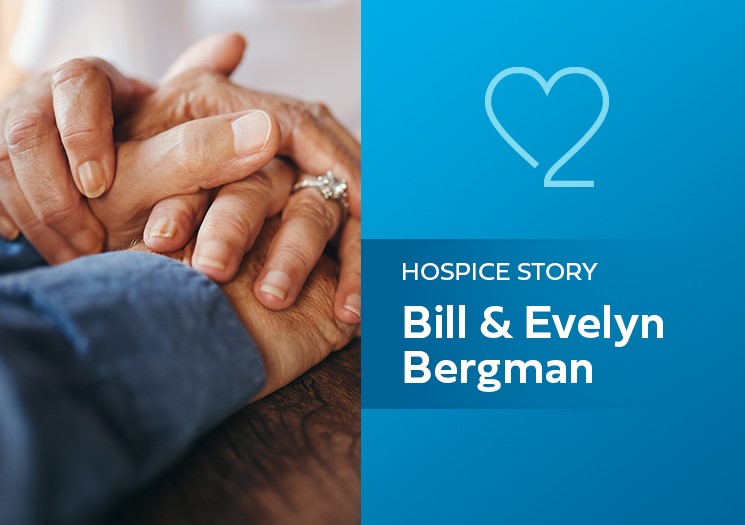- Find a Provider
-
Services
-
Redeemer Health provides compassionate care across every stage of life.
- View all Services
-
- Patients & Visitors
- Locations
- Careers
categories:

MEADOWBROOK, Pa. - Oct. 11, 2023 Holy Redeemer Hospital was one of only 29 hospitals in the Commonwealth notified by the Hospital and Healthsystem Association of Pennsylvania (HAP) that it demonstrated low rates of health care-associated infections in 2022.
HAP identified top-performing hospitals using data from the Centers for Disease Control and Prevention’s National Healthcare Safety Network. To be recognized, according to HAP, hospitals must perform better than the mean standardized infection ratio in three key measures: central line-associated bloodstream infections, catheter-associated urinary tract infections, and Clostridioides difficile (C. diff) infections. Hospitals that achieved this standard are included in HAP’s 2023 Excellence in Patient Safety Recognition program.
“This recognition validates the hard work and steadfast commitment that Redeemer Health exhibits with every patient every day,” said Cass Egan, Executive Vice President and Chief Administrative Officer of Holy Redeemer Hospital. “Preventing health care-associated infections requires unwavering attention to detail, and resolute focus on every patient’s safety. I’m proud of the team at Holy Redeemer Hospital, for insisting on a level of safety that is recognized as a top-performer.”
Nicole Stallings, HAP’s President and CEO, said, “HAP is proud to recognize the hospital teams with exemplary results from their efforts to continuously improve the quality and safety of patient care. This year, more hospitals met the criteria to be recognized than any other year since this program began. This speaks to the Pennsylvania hospital community’s strong commitment to patient safety.”
HAP is a statewide membership services organization that represents 235 hospitals as well as the patients and communities they serve. Additional information about HAP is available online, and learn more about the Excellence in Patient Safety Recognition program here.
categories:

The deep timbre of Larry Brereton's voice on the other end of a phone call provides hospice patients and their families a depth of empathy that comes only from experience. It wasn't very long ago when Larry's wife was in the care of Redeemer Health's hospice team. Now he channels an informed compassion to New Jersey families who need the same comfort, as a volunteer for the hospice team.
"Everyone loves Larry," says the team at Redeemer Health's Home Care and Hospice in New Jersey. As a volunteer for the Mercer office, Larry calls patients to check on them, and he makes home visits with the caregivers. The value in his work is a two-way street, he explains. "I'm getting as much as I'm giving. I'm trying to help people, and that's good for both of us."
His wife Evelyn passed away almost six years ago at 62, after a 22-month challenge with cancer that metastasized from her lung to her brain. Larry took care of Evelyn the whole time, but eventually he knew she needed a level of care that he couldn't provide. Her doctor referred them to Redeemer Health, and the nurses, social workers and chaplains gave Larry and Evelyn the end-of-life care she needed.
 Married in 1979, Larry and Evelyn had successful careers and raised twins. Larry was a director in computer technology, and Evelyn's PhD from Rutgers University resulted in three patents. When Evelyn passed away, Larry knew he wanted to volunteer to keep busy and to help people, even while recuperating from a knee replacement during the COVID-19 pandemic. It was with Evelyn's hospice team that Larry found a way to give back.
Married in 1979, Larry and Evelyn had successful careers and raised twins. Larry was a director in computer technology, and Evelyn's PhD from Rutgers University resulted in three patents. When Evelyn passed away, Larry knew he wanted to volunteer to keep busy and to help people, even while recuperating from a knee replacement during the COVID-19 pandemic. It was with Evelyn's hospice team that Larry found a way to give back.
"When Larry is included in a hospice patient's experience, a level of comfort, compassion and empathy is two-fold," said Suzanne Scarpa, BSN, RN Director of Clinical Operations. "First, he's a wonderful volunteer, a great listener, and a source of comfort for hospice patients and their families. But he also has personal experience with hospice care, and that makes him an invaluable resource to our patients."
To learn more about palliative care and hospice care in the home, visit Redeemer Health's website, or call 888-678-8678 to find out how you can access care for a loved one. If interested in volunteering with our NJ Hospice team, please reach out to Spiros Ballas at 609-695-3461.
categories:

Isabelle Noblanc is an accomplished entrepreneur and proud owner of a flourishing artisan bakery in Bucks County, Pa. She’s also a two-time survivor of breast cancer. Now thriving alongside her wife Chef Magali and their beloved French bulldog Charlie, Isabelle’s journey offers an inspiring example of triumph in both life and business.
With a long family history of breast cancer and personal experience with cysts from a young age, Isabelle recognized the importance of early detection and had been going for her yearly mammograms since age 33.
In January 2021, with the ongoing uncertainty of the pandemic, a troubling spot was detected during her routine annual mammogram. Determined to find advanced cancer care close to home, Isabelle turned to the advice and recommendations of her friends, neighbors, and community.
All paths guided her to Dr. Stacy Krisher, Medical Director of the Breast Health Program at Redeemer Health in partnership with MD Anderson Cancer Center at Cooper.
From their very first encounter, Dr. Krisher gave Isabelle a sense of comfort and caring, while at the same time the strength and confidence to know she was in the right place to thrive once again.
“Dr. Krisher explained my options in great detail in a manner that I could easily understand, helping me to make informed decisions about my own care,” Isabelle said.
The first thing Dr. Krisher did was perform a biopsy, which revealed that Isabelle had a type of breast cancer called estrogen receptor-positive and progesterone receptor-positive (ER-PR positive), HER2 negative. Interestingly despite her family history, Isabelle tested negative for the BRCA gene.
After learning about her choices, Isabelle decided to have a double mastectomy with reconstructive surgery.
She recalled, “From the time I arrived at the hospital until I returned home, everyone I met during my journey was super nice and helpful. They even arranged for a home care nurse to look after me, which was a big relief with my wife opening up the bakery and having to rely upon the help of a close friend until I got back on my feet.”
After months of chemo and radiation therapy, Isabelle resumed her life until one day in August 2022. She felt a small lump and immediately returned to Dr. Krisher. An ultrasound was performed right away and when it showed nothing, Dr. Krisher recommended a more extensive biopsy, which she did during that same appointment.
When the results came in, and after close review by a team of experts, Isabelle’s cancer was diagnosed as borderline triple-negative cancer, one of the most aggressive and complex types. Despite the lump having been successfully removed, Isabelle decided to undergo several more rounds of radiation therapy combined with oral chemo.
Today, Isabelle is flourishing once again. She looks forward to her three-month follow-ups, with the genuine care and ongoing interest shown by Dr. Krisher keeping her energized and hopeful.
Isabelle couldn’t walk more than a block without discomfort while undergoing treatments. Now, she has resumed hiking, taking her dog Charlie for long walks at the beach, and pouring all her energy into the specialty artisan bakery she and her wife have worked so hard to make a local success.
Her experience as a two-time thriver has given her a renewed perspective on life, what’s important and ways to give back. Not only a true testament of her strength and resilience, Isabelle’s is a story of hope and inspiration for so many.
Learn more about breast cancer services at Redeemer Health in partnership with
MD Anderson Cancer Center at Cooper. Also, be sure to watch our webinar, Debunking the Top Three Breast Cancer Myths: Separating Fact from Fiction, with Dr. Stacy Krisher. In less than 45 minutes, fact is separated from fiction when it comes to some of the most common myths regarding breast cancer.
categories:

Nancy’s* husband Paul was about to be discharged from a central New Jersey hospital following blood transfusions when his oncologist recommended his family seek hospice care. As he faced the final stages of his terminal illness, Nancy chose Redeemer Health Hospice Care to provide the comfort and support Paul needed at home.
What Nancy didn’t realize then was the huge difference her Redeemer Health care team would make in those final weeks. The Redeemer Health hospice care team, led by nurse Lynna Neuberger (pictured above), provided comfort and guidance to Paul, Nancy, and their two adult children.
According to Nancy, Paul enjoyed their visits. “Their visits encouraged him and gave him strength,” she said. “The team made a huge difference in those final days by ensuring everything was as peaceful and meaningful as possible.”
In this difficult time, the hospice care team was the emotional safety net Nancy and her family needed. “They helped us understand what to expect and treated us with respect,” Nancy says.
“I appreciate their investment in our family,” she adds. Lynna and the hospice care team did everything from teaching them what they needed to know about medications and care to helping make calls and arrangements. The team also was crucial in helping Paul’s daughter, who is deaf, understand what was happening and arranged for ways for her to better communicate with Paul.
For her part, Lynna is grateful of the praise for her team and says it’s a reflection of the greater comradery among the Redeemer Health Home Care and Hospice staff. “I’ve never worked with a care team that has better comradery and fluidity. We meet people where they are and connect with them in meaningful ways,” she says.
After hearing several friends share unsettling stories of struggles with end-of-life care for their family members, Nancy realized how special her experience was and looked for ways to help others. One way was through a generous gift from Paul’s family foundation to further help us provide outstanding hospice care.
Nancy also decided to share her story to be instructive to others. According to her, the key is the quality of the people—they must have respect for the patient and their family and have a willingness to teach. She saw this quality in the care she received from the Redeemer Health hospice care team.
*Fictitious names have been used to respect patient privacy.
categories:

Moving to a new residence is a big step, but choosing the right time of year can make all the difference. Fall offers many advantages for those considering a move.
The cooler temperatures make the moving process more enjoyable and less physically demanding than the heat of summer or the harsh cold of winter. Plus, the season's foliage and beauty enhance the overall experience. This is especially true for those who move to The Lafayette, a Redeemer Health senior living community surrounded by the beauty of Pennypack Park and spectacular woodland views.
Moving during the fall also provides a relaxed atmosphere, making it easier to adapt to your new surroundings. But that's not all. Fall is a lively time in senior living communities, offering a wealth of activities to connect with like-minded individuals.
At The Lafayette we offer a vibrant independent living lifestyle, hosting a wide range of engaging events from September through December. Think holiday-themed gatherings, food festivals, live entertainment, and discussion groups—all designed with residents’ interests in mind.
Find the Right Senior Living Community
When contemplating a move to a senior living community, it's important to explore various options available to you. In our region, there are many independent living communities. Rest assured, with the wide range of choices available, you're certain to find one that aligns perfectly with your needs and preferences.
At The Lafayette, we encourage and welcome visitors to experience and learn more about our community through a personal tour or by attending one of our events. You can easily request to be put on our mailing list to be notified of an event and/or arrange a tour by contacting 215-214-2877 or visiting redeemerhealth.org/LafayetteLiving.
Prepare for a Stress-Free Move
Once you've made the decision to move, it's time to start organizing and planning. While at first, it may feel overwhelming, with proper planning and organization, your move can be a stress-free experience. Breaking tasks down into manageable steps is a great first step. Take the time to decide if you would like to engage family or friends, or the expertise of a professional downsizing (or as we like to say “right-sizing”) expert.
Decluttering, donating, or selling items you no longer need can make your move lighter. Properly labeling boxes and prioritizing essential items will ensure easy unpacking. And amid all the energy and excitement, remember to prioritize self-care and rest. At The Lafayette, our helpful team specializes in helping you find the right resources, so you can spend your time getting acclimated and involved in the community.
Your New Home Awaits
Moving into a senior living community can be an exciting leap forward. It’s the start of a new chapter and autumn is the perfect season to get to know new neighbors, meet resident ambassadors, and participate in events as we enter the holiday season.
At The Lafayette, we would be delighted to introduce you to our vibrant community and all of the possibilities that await! For more information, visit redeemerhealth.org/LafayetteLiving or call 215-214-2877.
categories:

September is National Ovarian and Gynecological Cancer Awareness Month – the perfect time to schedule your well-woman exam and any preventive health screenings that are due.
Gynecological cancers refer to cancers affecting the female reproductive system. There are distinct signs, symptoms, and risk factors for each type of gynecological cancer, including hereditary factors. All women are at risk for gynecological cancers; that risk tends to increase as we age.
The National Cancer Institute estimates that more than 106,000 women in the U.S. will receive a gynecological cancer diagnosis in 2023. While there are several categories of gynecological cancers, our focus is ovarian cancer, which includes cancers of the ovaries, fallopian tubes, and in rare instances, the primary peritoneum (the thin layer of tissue that lines the pelvis and abdomen).
The signs and symptoms of ovarian cancer vary from woman to woman, and may include:
- General abdominal discomfort or pain
- Nausea, diarrhea, constipation or frequent urination
- Loss of appetite
- Unusual fatigue
- Pain during sex
- Unexplained weight loss or gain
- Bloating and/or a feeling of fullness, even after a light meal
- Abnormal vaginal bleeding
- Back pain
- Menstrual changes
Experiencing these symptoms does not always mean you have ovarian cancer. If any of these are new symptoms, if they persist for longer than a few weeks, or if they occur frequently (more than 12 times a month), it’s important to discuss them with your doctor.
What are the risks for ovarian cancer?
There are several known risk factors that increase a woman's likelihood of developing ovarian cancer. These include:
- Age: Women older than 50 are at higher risk.
- Family history: Especially if a woman has a first-degree relative who has had ovarian or breast cancer.
- Genetic factors: This includes genetic mutations such as those in the BRCA1 and BRCA2 genes.
- Never having children: Pregnancy and childbirth can have a protective effect, and women who have never given birth are at higher risk.
- Other risk factors include: Early onset of menstruation or late onset of menopause, hormone therapy, obesity, and smoking.
Not everyone with risk factors gets ovarian cancer. However, if you have risk factors, it’s a good idea to discuss them with your healthcare provider. It is also worth noting, anything that stops ovulation for a time may lower the average woman’s risk of ovarian cancer.
How is ovarian cancer diagnosed?
Ovarian cancer often presents no signs or symptoms, and there are currently no routine screening exams to detect this disease at its earliest stages. That’s why it’s important to schedule regular check-ups with your healthcare provider.
The following testing and diagnostic options are also available, which may help:
- Pelvic examination to check for any abnormalities or masses in the ovaries;
- Imaging tests such as ultrasound, CT scan, MRI or PET scan to help detect any tumors or cysts;
- Blood markers to assess the levels of certain proteins associated with ovarian cancer;
- A biopsy, if any abnormalities are detected, and
- Genetic testing in cases where there is a family history or suspected hereditary factors.
Take advantage of National Ovarian and Gynecological Cancer Awareness month as a reminder that looking after yourself isn't selfish. In fact, it can save your life! Know your body, pay attention to symptoms, and don’t be afraid to ask for help if something doesn’t feel quite right.
Don’t wait. Schedule your well-woman exam today. To find a Redeemer Health OB/GYN, call 800-818-4747 or visit the Redeemer Health website.
categories:

Evelyn Bergman ran marathons until she was 66. She was very fit, said her husband, Bill. Evelyn was even bike training into her 70s. A headache, though, on a February evening two years ago, ultimately led to a trip to the operating room. After her surgery, Bill cared for Evelyn at home as best he could, but she never fully recovered and he eventually reached out to an old friend for advice.
“I called Alan about palliative care,” Bill recalled, referring to Alan Rosenberg, Executive Vice President of Redeemer Health Home Care and Hospice. The two gentlemen were old friends from way back. They had lunch and talked about options. Alan introduced Bill and Evelyn to Brenda Buzydlowski, DO, a palliative care specialist at Redeemer Health.
Dr. B, as Bill calls her, explained the difference between palliative care and hospice care, and by last September Evelyn had been admitted to at-home hospice. Six months later, she passed away in the care of people who made the experience easier to bear for both of them.
Bill and Evelyn were married in 1970, led active lives and successful careers. He was a chief inspector at the Philadelphia Police Department and chief of staff at Temple University. Evelyn was a 20-year ER nurse. As a result, they both knew what compassionate service and a culture of caring are all about, and they found it at Redeemer Health.
“Redeemer Health’s home hospice program made a difficult situation easier to handle,” Bill said. “Everyone has a compassionate spirit. The nurses, the chaplains, the social workers…they care about people. And Dr. B is fabulous.”
According to Sarah DiPadova, Director of Clinical Operations at Redeemer Health Home Care and Hospice, “Palliative care offers an additional level of education, support and care to patients and their families. Monitoring patients and managing symptoms can help prevent needless office visits and hospital admissions. But when the appropriate time comes, a palliative care team can offer the education and support necessary to make a timelier and smoother transition. The eventual hospice admission gives patients and their families more support when they need it.”
Bill acknowledged that one of the benefits of the advanced care Evelyn received at home was avoiding burdensome trips to doctors’ offices. They also found solace in Redeemer Health hospice care being available in both Pennsylvania and New Jersey, since Evelyn enjoyed spending time at the Bergmans’ beach house at the Jersey shore.
The advice Bill and Evelyn received from Alan, and the care managed by Dr. Buzydlowski, served the couple well. “Evelyn was comfortable, in the care of people who truly made a difference. Even after she passed, I found compassion and respect during phone calls with the Redeemer team.”
To learn more about palliative care and hospice care in the home, visit Redeemer Health’s website, and call 888-678-8678 to find out how you can access care for a loved one.
categories:

August is National Breastfeeding Month and a great time to discover the beauty and importance of breastfeeding. If you're a new or soon-to-be mom, you've probably heard about the amazing benefits of breastfeeding. However, getting the proper guidance and support can sometimes be a challenge.
According to the Centers for Disease Control and Prevention (CDC), breastfeeding is the best source of nutrition for most infants, providing all the necessary vitamins and nutrients for growth and development.
How does breastfeeding protect both mom and baby? Breast milk contains antibodies that help protect against infections and illnesses, reducing the risk of certain health conditions for both infants and mothers.
- Some of the benefits for infants include reduced risk of respiratory infections, ear infections, and diarrhea. Breastfeeding has also been linked to a lower risk of sudden infant death syndrome (SIDS).
- For mothers, breastfeeding can reduce the risk of breast and ovarian cancer, and may lower the risk of type 2 diabetes.
- Breastfeeding triggers the release of hormones such as oxytocin and prolactin, which not only promote the production of breast milk but also contribute to stress reduction and relaxation for both mother and baby.
Breastfeeding in the early weeks can sometimes be a challenge for new moms, but the benefits are worth it! Everyone in your circle can play an important role in the following ways:
- Family members can help with household chores or caring for other children, freeing up your time to focus on breastfeeding;
- Your healthcare provider can provide you with valuable information and resources, such as lactation consultants, breastfeeding support groups, or online forums, and
- If and when you return to work, your employer can assist by providing a private space for pumping, flexible schedules, and other accommodations to make continued breastfeeding feasible.
Redeemer Health can also be a great resource for women who choose to breastfeed. We have earned the Keystone 10 (K10) designation from the PA Department of Health and the American Academy of Pediatrics Pennsylvania Chapter. This recognition underscores our commitment to promoting and supporting breastfeeding.
“Being part of the Keystone 10 quality improvement breastfeeding initiative highlights our commitment to promoting and supporting breastfeeding. It also helps us achieve our goal of enhancing breastfeeding care, rates, and ultimately enhancing the health of both moms and babies,” says Christina Marczak, Director of Maternal Child Health at Redeemer Heath.
At Redeemer Health, our compassionate, knowledgeable lactation consultants will give you personalized support and guidance every step of the way. We also offer a variety of breastfeeding resources and videos on our website and in our online community @redeemerbaby on Instagram and Facebook, where you can meet and stay connected with other new moms.
To learn more about our maternity care services and to download other useful educational materials about childbirth, breastfeeding, and after-delivery care, visit redeemerhealth.org/maternitycare.
categories:

Certified Nurse Aides, or CNAs, are highly valued professionals who play a vital role in various health care settings, including hospitals, long-term care facilities, and home health agencies.
CNAs provide direct care to patients who may be unable to care for themselves. This may include basic needs such as bathing, dressing, and feeding. Additionally, they offer emotional support to patients and help them feel less alone during their hospital stay or rehabilitation process.
Great Personal Reward
For many CNAs, the fulfillment they receive from helping others is the most significant personal reward of all. Stephanie Cashley, who works in long-term care at Redeemer Health’s St. Joseph Manor, got her CNA certification in 2022 and treasures the meaningful relationships she has formed with residents and their families.
No stranger to St. Joseph Manor, Stephanie began her career there as a housekeeper and remained in that role for four years. As she was approaching her fifth year, she explains how she felt drawn to take on additional tasks that could help to enrich the lives of residents, however, those tasks fell within the role of a CNA, which required necessary education and credentialing.
“I was encouraged by colleagues at St. Joseph Manor to enroll in Bucks County Community College’s Nurse Aid Training program,” says Stephanie.
After careful thought, Stephanie was ready to take the leap, and just several months later she had all the necessary nurse aide education, training, and certification completed.
“I get so much joy in my role as a CNA. I love to bring a smile to the faces of my residents. They know I am someone they can talk to and confide in. I also love that I am able to personally connect with and talk to the family members of my residents. The families really appreciate that I am here to assist on a daily basis and that I can keep them informed about their loved ones’ special moments throughout the day, says Stephanie.
CNAs Can Expect to See the Field Greatly Expand
Besides the personal rewards of becoming a CNA, it’s equally encouraging to know that career prospects are very promising. The nurse aide profession is projected to grow by an impressive 25% over the next 15 years. This growth, coupled with the increasing demand for health care services, opens up opportunities for CNAs to earn rates averaging $17-$22+ per hour.
In addition, becoming a CNA can serve as a stepping stone to further advance in the health care field. Many CNAs choose to continue their education and pursue higher levels of certification, such as Licensed Practical Nurses (LPNs) or Registered Nurses (RNs).
Train and Get Certified in About Four Months!
If you believe becoming a CNA is the right career path for you, Redeemer Health, in partnership with Bucks County Community College, offers a three-month nurse aide training program that combines classroom education and practical experience at two Redeemer Health long-term care facilities: Lafayette and St. Joseph Manor. Classes run September 20-December 14, every Wednesday and Thursday.
categories:

Now is a great time to focus on the importance of men’s health and wellness. Awareness, prevention, and education are key, as are health screenings, which can help detect issues early as men age.
According to the Centers for Disease Control and Prevention (CDC), heart disease and cancer are among the top leading causes of death for men. This is an essential reminder that men’s health should be taken seriously, and early detection can play a critical role in managing and preventing some of these issues.
Recommendations from the U.S. Preventive Services Task Force (USPSTF), an independent voluntary panel of experts in primary care, prevention, and evidence-based practice, include a roster of screenings appropriate for men of any age. Below are just a few:
- Regular blood pressure checks to detect hypertension.
- Checking cholesterol levels to prevent heart-related issues (for men aged 35 and above). Consult your primary care physician to discuss the option of undergoing a low dose CT cardiac calcium score test, which can aid in the early detection of any potential issues.
- Colorectal cancer screening (beginning at age 45 for average-risk men or earlier based on family history).
- Screening for Type 2 Diabetes (starting at age 35 for men with risk factors such as obesity or family history). Did you know, nutritional counseling services are available through our partnership with Simplex Health? To learn more, visit simplexhealth.com or call 1-877-842-2425.
- Discussing the benefits and risks of prostate cancer screening with a health care professional (for men aged 50 or older).
- Lung cancer screening (at age 55 for current or past smokers). You may be a candidate for a low-dose CT (LDCT) scan, which can detect lung cancer earlier. Click here for more information or call 215-938-LUNG (5864).
- Abdominal aortic aneurysm screening (at age 65 for men who have never smoked).
These are only general guidelines and there are others to consider for issues like alcohol use disorder, depression, obesity, tobacco use, HIV, Hepatitis B and C, and syphilis, for example.
You should always consult with your doctor for personalized recommendations based on your individual needs and risk factors. It may also help to have additional conversations about diabetes, skin cancer prevention, and a diet designed to prevent cardiovascular disease.
Finally, your doctor can also assist in determining which vaccines may require a booster or re-dose. While vaccines for flu and COVID-19 are top of mind these days, you should also ask about vaccines for pneumonia, Tdap, shingles, meningitis, chicken pox, and Hepatitis A and B.
To find a doctor who is right for you, visit our provider directory or call the Redeemer Health Physician Referral Service at 800-818-4747.
